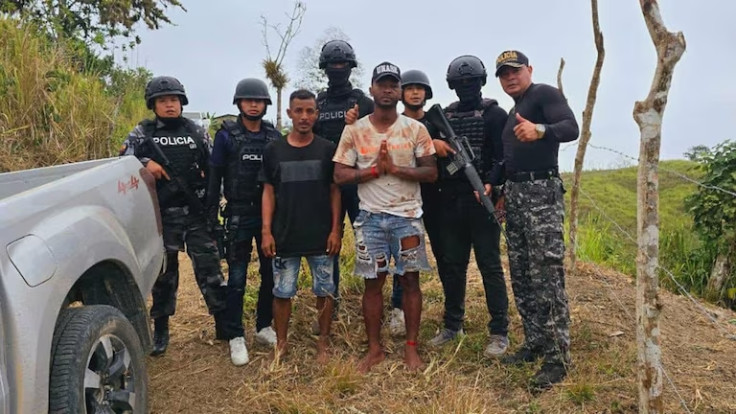
Ecuadorean police released footage of the operation that rescued Pedro Perlaza, a former top soccer player who had been kidnapped for ransom and held hostage in a jungle near Colombia.
Images published by Ecuadorean armed forces show the moment when troops reach a wooden house in the middle of the jungle and find Perlaza tied on the floor. "We're here Pedro, stay calm," one of them says while he bursts into tears while thanking him.
TREMENDO 😢🥺🚨 || Así fue el rescate de Pedro Pablo Perlaza.
— Ecuagol (@ECUAGOL) December 5, 2024
Se hacen públicos los videos de los uniformados de la Unase, que lograron rescatar al jugador en una zona montañosa de #Esmeraldas
pic.twitter.com/xMBd7GYxre
Perlaza, who played three matches for the Ecuadorean national team, was kidnapped last Sunday along with a friend, Juan Carlos Morales. Their captors were demanding $60,000 to release them.
Police managed to find them three days later. They were rescued after police engaged in a shootout with their captors, according to commander Diego Velasteguí, who led the operation. "They have been mistreated but they are alive, which is how we wanted to find them," he told press.
Perlaza, on his end, thanked police for "taking us out from where we were. We went through more than 15 mountains. It's like coming back to life, but we have to move forward. We're alive and that's what matters," he said.
The case illustrates the deteriorating security situation the country has been going through over the last years. Ecuador has been swept by a wave of organized crime and the increased activity of gangs that have focused on smuggling cocaine from Colombia to Europe using ports around the country. With these groups gaining both control and power in Ecuador, its status as one of Latin America's safest countries has been erased thanks to a homicide rate that has increased six-fold in the last five years.
According to a report from The Economist, Ecuador had a homicide rate of 6.7 per 100,000 inhabitants in 2019, a similar rate to the U.S. (5 per 100,000) but by 2023 that number skyrocketed to 45 per 100,000, making Ecuador the deadliest country in the Americas' mainland, only surpassed by Jamaica (49 per 100,000).
As criminal groups have gained power and notoriety, they have also adopted more vicious tactics similar to those from drug cartels in Mexico, including public hangings, decapitations and immolation. According to The Economist's Alexander Clapp, the situation has gotten so bad that gangsters in Guayaquil's poor neighborhoods have resorted to cutting the tongues out of children to prevent them from becoming police informants.
More than 8,000 murders were recorded all over Ecuador in 2023, an increase of 5,000 compared to 2021. Earlier this year, in January, prison riots erupted across the country, causing President Daniel Noboa to declare a state of emergency and deploy the army to the streets.
© 2025 Latin Times. All rights reserved. Do not reproduce without permission.





